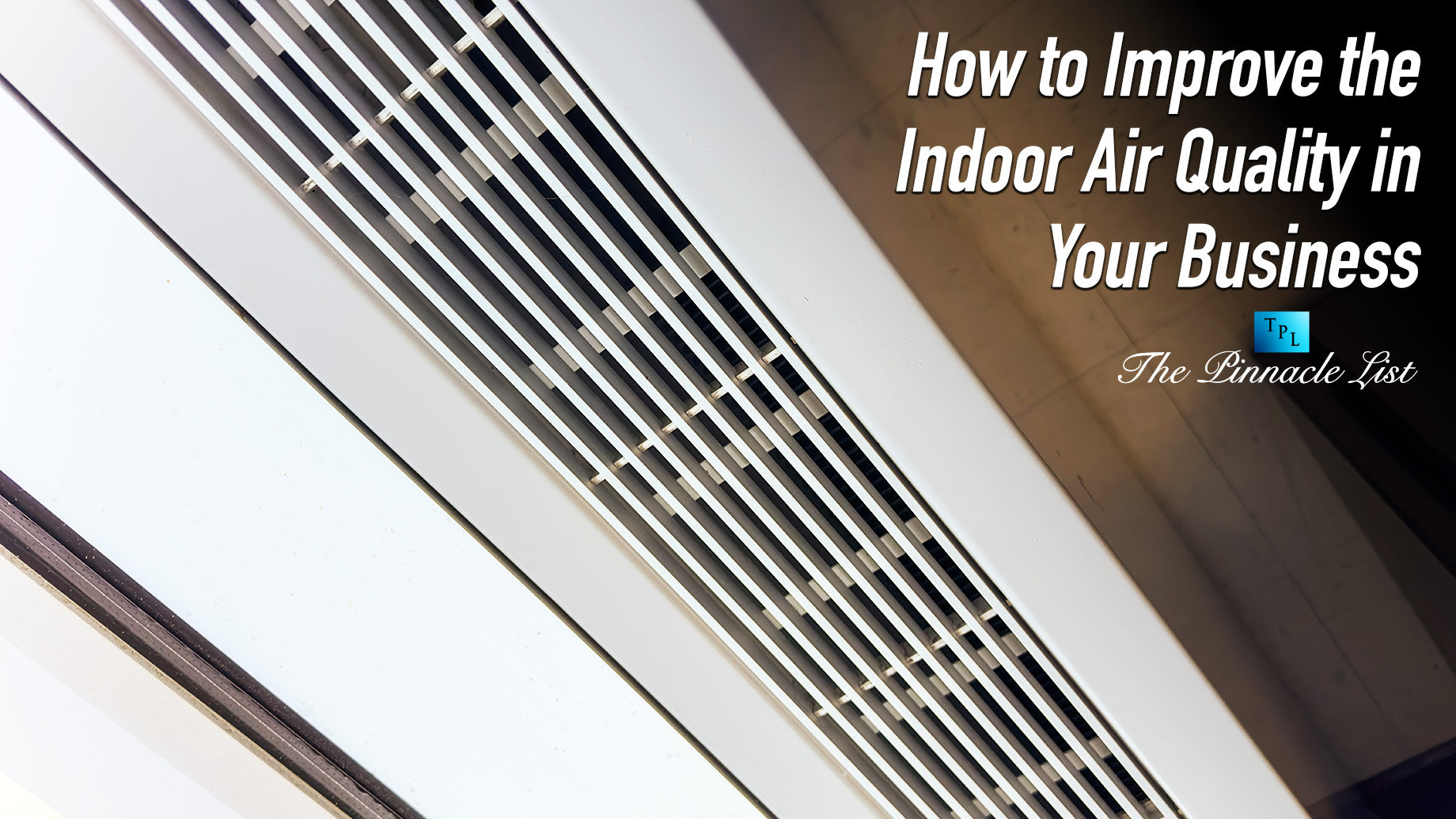
If you want your employees and customers to breathe easily and feel more comfortable, you’ll need to make an effort to improve the indoor air quality of your business. But what exactly does it mean to have higher indoor air quality? And how can you achieve it?
What Is Indoor Air Quality?
Indoor air quality is a relative measure of how clean and pristine the air of an indoor environment is. It’s perhaps easiest to understand by describing low-quality indoor air, which is often full of dust particles, mold spores, microbes, pathogens, and all kinds of other contaminants. Because there are so many different types of contaminants and because they affect people in different ways, indoor air quality is a broad, high-level measurement. However, it can have a massive impact on how people live, work, and enjoy themselves.
How to Improve Air Quality in Your Business
These are some of the best strategies for improving the indoor air quality of your business:
- Use antimicrobial coatings on your HVAC system: Antimicrobial coatings for HVAC systems are a relatively new technology that can filter out and destroy microbes that might otherwise compromise the quality of your air. It’s an excellent addition that can make your HVAC system much more effective at controlling microbes and other contaminants. It’s not going to perfectly eliminate every microbe from the air, but it’s going to be a powerful weapon in your indoor air quality control arsenal.
- Keep the air vents open and clean: You should always keep your vents open, unobstructed, and clean. Air circulation is incredibly important for improving the quality of the air, but if that circulating air is simply promoting and spreading more contaminants, it could actively work against you.
- Replace your air filters frequently: In your business HVAC system, you probably have sizable air filters that filter out contaminants. Even basic air filters do a great job of removing contaminants from circulated air, which can both improve air quality and protect your equipment at the same time. However, it’s important for you to replace your air filters frequently; as they become blocked with contaminants, they become less effective at filtering out new contaminants. The frequency of your replacement depends on what types of filters you’re using and what type of HVAC system you have.
- Maintain appropriate humidity: Maintaining a humidity between 30 and 50 percent is ideal not only for personal comfort, but also for limiting the growth and spread of dust mites, mold, and other allergens. Keep an eye on the humidity level in your business, and use humidifiers or dehumidifiers to keep the humidity level in the optimal range.
- Keep things clean: As you might imagine, a cleaner environment leads to cleaner air. Oftentimes, airborne contaminants come from spills, dust, and other sources of contaminants on the ground. If you commit to cleaning your business regularly, from top to bottom, your air quality is naturally going to improve.
- Include some plants: It might surprise you to learn that the inclusion of indoor plants can also boost your indoor air quality. Plants absorb carbon dioxide from the air and produce oxygen, sometimes absorbing contaminants in the process. This has only a minor effect, but because plants carry so many other benefits, they are definitely worth including.
- Open the windows (when you can): Fresh air and ventilation are ideal for maintaining high indoor air quality. Accordingly, you should strive to keep the windows open at your business whenever possible. Assuming the weather is good, keep the fresh air flowing.
- Inspect and clean your air ducts regularly: There is no firm recommendation for cleaning your air ducts at routine, consistent intervals, but you should inspect them regularly and clean them as needed. If your ducts are full of dust or debris, they need to be cleaned out.
- Test and monitor your indoor air quality: Finally, commit to testing and monitoring your indoor air quality. If it falls below a certain threshold, be ready to intervene with more action.
Why Improving Indoor Air Quality Is Valuable for Business Owners
Why should business owners care?
- Health and wellness: Because higher indoor air quality is associated with fewer microbes, allergens, and contaminants, it’s also associated with superior health and wellness.
- Productivity: When your air is cleaner, people are more comfortable. And when people are more comfortable, they tend to be more productive. Accordingly, cleaner indoor air leads to much higher productivity overall.
- Customer/client comfort: If your business regularly hosts customers or clients, they’ll likely be impressed with the comfort they experience in your building.
With better indoor air quality, your employees and customers will be healthier and more comfortable. And thankfully, there are more options than ever before to keep your indoor air quality pristine.